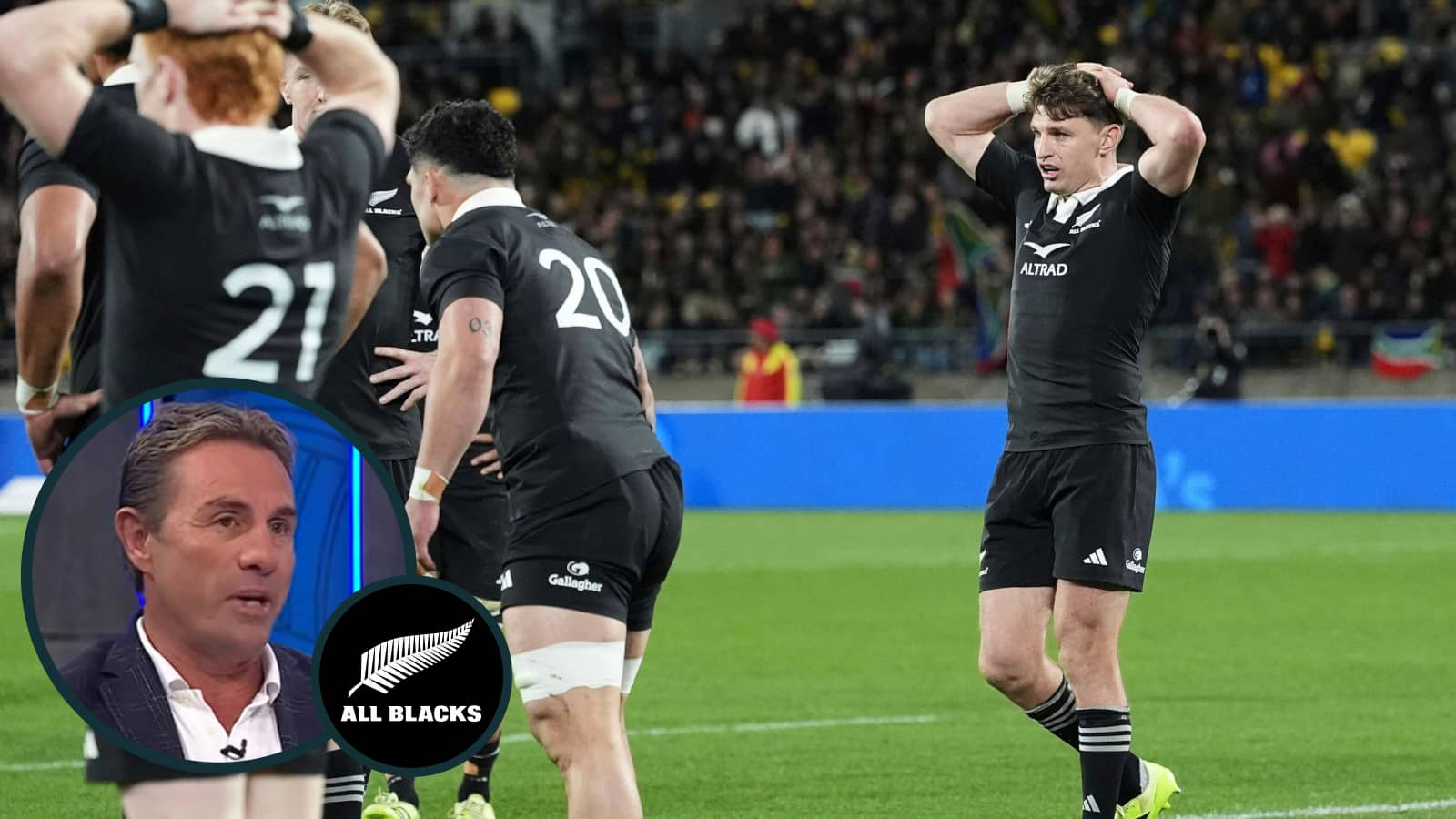Justin Marshall has suggested that having more All Blacks play abroad would not harm the national team’s prospects as they seek to become the game’s dominant force once more.
New Zealand won back-to-back Rugby World Cups in 2011 and 2015, but those successes seem a distant memory following the record defeat to the Springboks on Saturday.
While they continue to be among the top nations in the sport, they have created plenty of unwanted history since the 2019 global tournament.
There were hopes that bringing in the very highly rated Scott Robertson would change that but even he has overseen some disastrous days.
Losses to Argentina and South Africa
Last month, they became the first All Blacks team to lose to Los Pumas on Argentinian soil and they arguably endured their worst-ever 80 minutes in Wellington, going down 43-10 to the Boks.
There will no doubt be another inquest into this latest shambolic loss and it may force Robertson, as well as New Zealand Rugby, to reassess.
“We are, I guess to a degree, a little arrogant here in New Zealand where we feel that our type of rugby is the best type of rugby and that we can’t learn,” Marshall told SuperSport.
At the moment, NZR do not allow anyone who plies their trade abroad to play for the All Blacks.
Sabbaticals have enabled current New Zealand stars to earn lucrative short-term contracts but they have mainly been taken up in Japan, where the standard of rugby is not as high as in Europe or South Africa.
In contrast, SA Rugby do not have a restrictive overseas policy, enabling their players to go anywhere in the world.
During his playing days, Marshall featured for Leeds Tykes, Ospreys, Montpellier and Saracens, but he had to give up his Test career in order to do that.
Even though the former scrum-half was the wrong side of 30 when he travelled to the northern hemisphere, he felt that he improved.
“I found that when I went over and played overseas, I did learn. I actually felt that the first two years I was there, and I left the All Blacks in 2005 after the British and Irish Lions series, I was a better player than the one that finished against the Lions,” Marshall said.
“I was a more balanced, rounded player because I had to start dealing with things like slow ball; regenerate, get momentum as we’re just used to playing with such quick ball in New Zealand, so I had to be more creative as a nine and use my forwards a lot more cleverly.
“I think players that are now going away having sabbaticals, like Jordie Barrett, is testament to that as he’s come back a better player.”
All Blacks player ratings: New Zealand ‘utterly outplayed’ as debutant ‘the only positive’
Jordie Barrett’s improvement
Coincidently, Barrett has been in fine form since returning from Leinster and was arguably the All Blacks’ best player in their defeat to the Springboks.
The governing body are unlikely to change tack on the basis of one result but it is an issue which will always be discussed in New Zealand, particularly if they suffer more heavy defeats.
“It’s one that will continually be debated in New Zealand because we obviously have the policy that we won’t select outside of New Zealand and that’s just part of our infrastructure and what we do,” Marshall added.
“I wasn’t an advocate for it before I went overseas, that’s for sure, because I was thinking that if they bring back Graeme Bachop, I’m out of a job!
“I was like, ‘no, no, we don’t want to do that’, but once I went I was like, ‘yeah, we should be allowed to be picked!’”
READ MORE: World Rugby rankings: The impact of the Springboks’ historic thrashing of All Blacks

